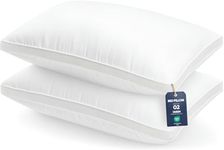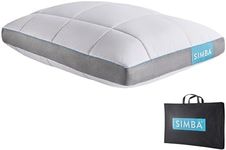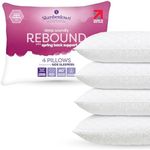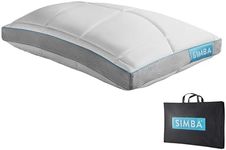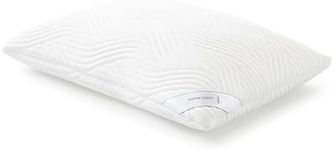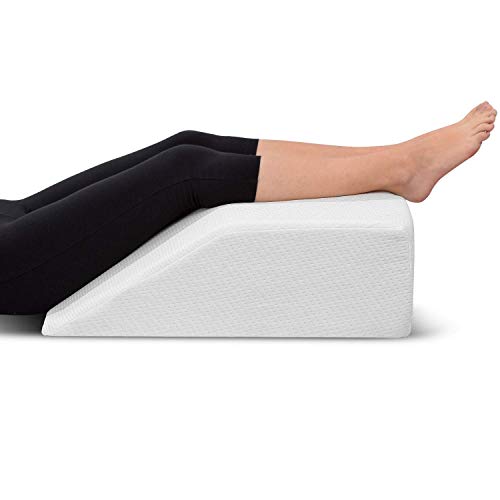Buying Guide for the Best Pillows
Choosing the right pillow is essential for a good night's sleep and overall well-being. The right pillow can help maintain proper spinal alignment, reduce neck and back pain, and improve sleep quality. When selecting a pillow, consider your sleeping position, any allergies, and personal comfort preferences. Here are some key specifications to consider when choosing a pillow:Fill MaterialThe fill material of a pillow determines its feel, support, and durability. Common fill materials include memory foam, down, feather, synthetic fibers, and latex. Memory foam offers good support and conforms to the shape of your head and neck, making it ideal for those with neck pain. Down and feather pillows are soft and luxurious but may not provide enough support for everyone. Synthetic fibers are hypoallergenic and affordable, while latex pillows are durable and provide firm support. Choose a fill material based on your comfort preference and any allergies you may have.
Loft (Height)The loft of a pillow refers to its height or thickness. It is important because it affects the alignment of your head, neck, and spine. Pillows with a high loft are best for side sleepers as they provide the necessary support to keep the spine aligned. Medium loft pillows are suitable for back sleepers, offering a balance between support and comfort. Low loft pillows are ideal for stomach sleepers, as they prevent the neck from being strained. Consider your sleeping position when choosing the loft of your pillow.
FirmnessPillow firmness affects how much support your head and neck receive. Firm pillows provide more support and are suitable for side sleepers who need to keep their head and neck aligned with their spine. Medium-firm pillows offer a balance of support and comfort, making them ideal for back sleepers. Soft pillows are best for stomach sleepers, as they allow the head to sink in slightly, reducing strain on the neck. Choose a firmness level based on your sleeping position and personal comfort preference.
SizePillows come in various sizes, including standard, queen, and king. The size of the pillow can affect your comfort and the overall look of your bed. Standard pillows are the most common and fit most beds. Queen pillows are slightly longer, providing more space for movement. King pillows are the largest and are ideal for king-sized beds or for those who prefer extra space. Consider the size of your bed and your personal preference when choosing the size of your pillow.
AllergiesIf you have allergies, it is important to choose a hypoallergenic pillow to reduce the risk of allergic reactions. Hypoallergenic pillows are made from materials that resist dust mites, mold, and other allergens. Synthetic fiber and latex pillows are good options for allergy sufferers. Additionally, look for pillows with removable and washable covers to keep them clean and free from allergens. Consider your allergy needs when selecting a pillow.
Cooling PropertiesSome pillows are designed with cooling properties to help regulate temperature and keep you comfortable throughout the night. These pillows often feature breathable materials, cooling gel layers, or moisture-wicking fabrics. If you tend to sleep hot or experience night sweats, a pillow with cooling properties can help you stay cool and comfortable. Consider your temperature preferences when choosing a pillow with cooling properties.



